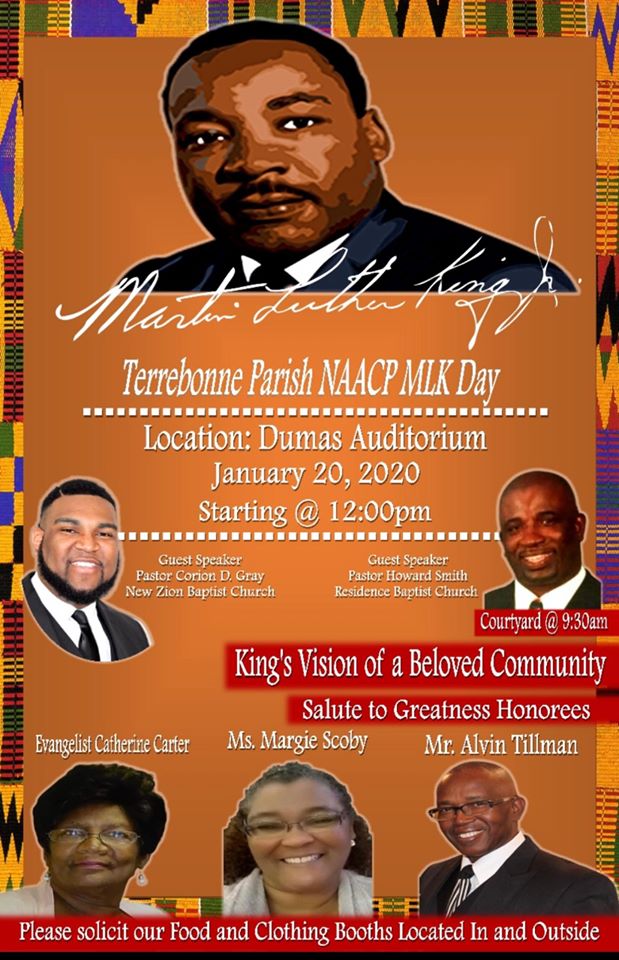
Terrebonne NAACP welcomes all to 2020 Martin Luther King Jr. Day Celebration
January 18, 2020
Night Light Dash promotes heart health
January 19, 2020This conversation spun back up when, Thursday, January 9th, Facebook announced it would not change its policy on political advertising on its website ahead of the 2020 election. The printing press, radio, and television each had their influence on democracy, and now we are adjusting to social media.
“Credulity is a greater evil in the present day than it ever was before, because, owing to the growth of education, it is much easier than it used to be to spread misinformation,” said Bertrand Russell in his speech titled Free Thought and Official Propaganda. “Owing to democracy, the spread of misinformation is more important than in former times to the holders of power.”
It is the common cliche of our time to blame social media for the polarized nature of our political climate. One could be forgiven if the previous statements by the esteemed Russell were mistaken for a comment on our current predicament, but that speech was delivered on March 24, 1922 and he was remarking on the large variety of newspapers in circulation.
The same issue which plagued democracy during the era of his speech has risen to prominence within our own. Complaints about foreign interference being the source of misinformation, while warranted, are not the underlying issue. So long as we as a society continue to enshrine freedom of speech – and we absolutely should – the problem will never cease to occur; therefore, a cultivation of personal skepticism is essential.
Previously to be a member of the public discourse there were certain barriers to entry. Whether it be television, radio, or print, one had to be hired (this immediately excludes an entire age range who are quite adept online). Furthermore, the people who consume the political statements are limited based on the outlet’s target audience. For example: how often do MSNBC viewers know what is said on Rush Radio? Time and space allotments constrain messaging, dictated by advertisers. Finally editors, and occasionally owners, decide what can and cannot reach the audiences.
Currently the social media websites are changing these rules – I would even argue for the better. Formerly suppressed political views are once again aired in the public domain, forcing ideas which have stagnated in isolation to shape up. Where once pundits, pollsters, and politicians could frame the boundaries of debate for the general public, now the Trending tab, even if occasionally the unsavory Twitter mob rules it, can elicit a response.
Social media has taken a wrecking ball to the traditional narrative setters of the past. Where once institutions like the New York Times would hand down the talking points of the day, for now, everyone is jostling to learn the new rules of the game. New guard rails are being erected even as I type this. Social media outlets fight their PR battles and lawmakers look to create new rules, but as it stands there is an unparalleled freedom, not to mention reach, for the independent voice.
Do not conflate freedom to be heard with the tech companies’ PR campaign that they are platforms for free speech. Anything with an editor, by definition, does not grant free speech, and what role would the invisible hand of the algorithm be if not editorial; furthermore, the treatment of the disinformation peddler Alex Jones, host of “Information Wars,” also proves there are already prohibitions to speech on these sites.
I grant that society would be vastly improved if the clashing of contradictory ideas within these virtual forums were more common because, as it stands, the reach of one’s message appears only to reach within the ideological groupings of those who already sympathize with the message.
With all this acknowledged, it would seem easy to place blame squarely on the shoulders of our internet overlords, for they are the holders of power, but sadly one only need reflect on their own thinking habits to see where fault lies. Each of us are lord over our own notions. Responsibility of thought and belief lay on the individual. If told the sky were suddenly green, shame would belong to those who did not glance up to check.
As a wise, yet cynical man, once told me, “If your mother says she loves you, check the facts.”







